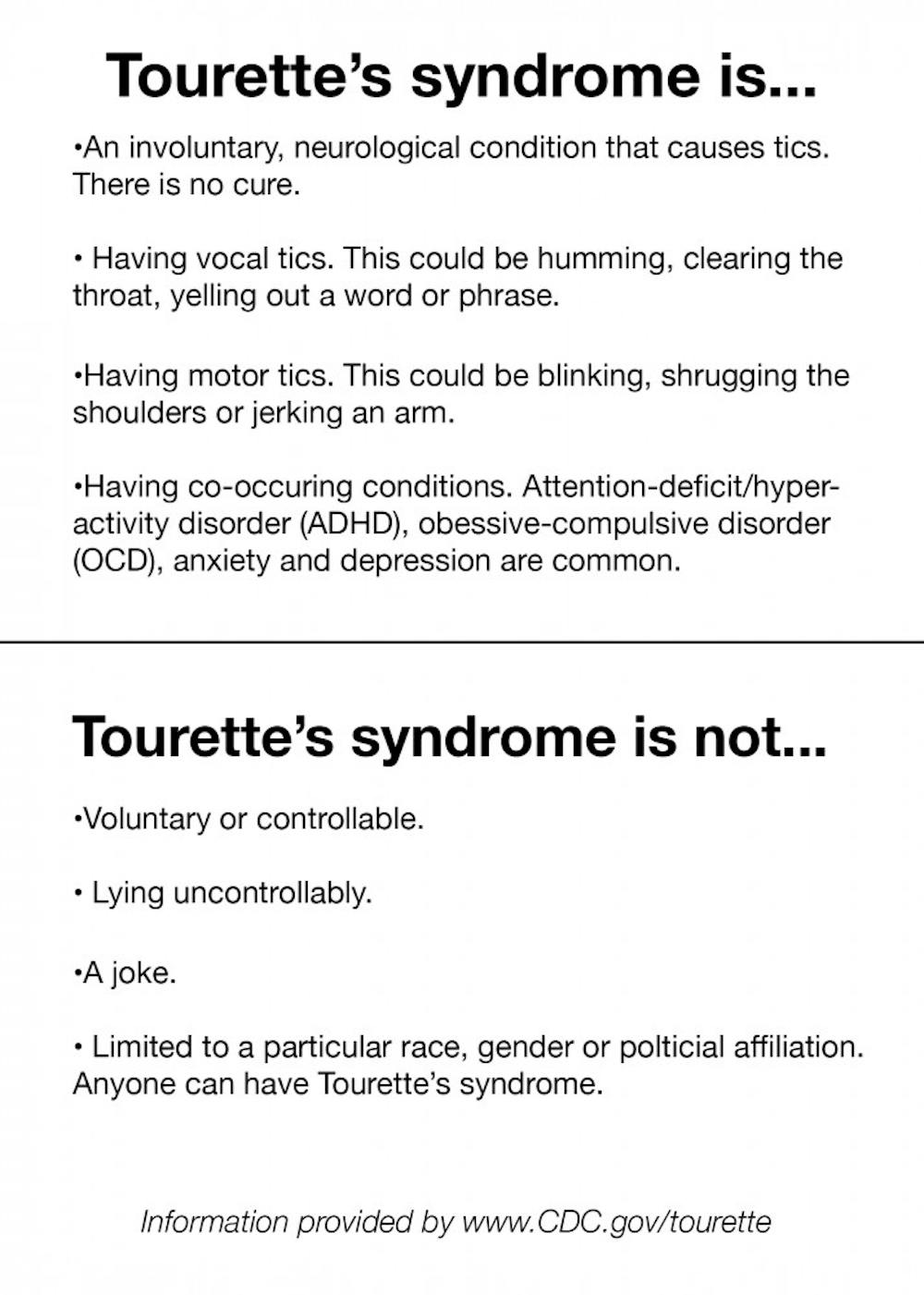Life with Tourette’s syndrome is difficult enough without offensive headlines.
An opinion article published by The Washington Times, a conservative daily newspaper in Washington, D.C., published a headline on Sept. 13 that read “Democrats sputter lies like they have Tourette Syndrome.” After outrage from the Tourette’s community on Sept. 19, The Washington Times updated its headline to “Democrats are afflicted by uncontrollable urge to sputter lies.”
It is unclear who enacted the headline change, because author Cheryl Chumley was insensitively insistent on social media keeping the headline the same. Chumley denied having written an offensive headline and turned to Facebook saying, “Stop trying to pretend I said something I didn't, or wrote something I didn't, or made mockery of something I didn't. Maybe then it'll become evident why I'm not changing the headline. Oh yeah — once again: Not apologizing. Not changing headline.”
The Tourette’s community was outraged, and rightfully so, because the comparison of Democrats to individuals with Tourette’s syndrome is insulting and uninformed. People with Tourette’s syndrome do not sputter lies. Tourette’s syndrome is a neurological disorder characterized by repetitive tics, involuntary vocalizations and movements. Both kinds of tics can become more complex, and vary among individuals.
The Washington Times’ headline insinuates that having Tourette’s syndrome means sputtering lies and that Democrats, in particular, can’t control when they lie. Tourette’s syndrome isn’t a synonym for a compulsive liar, and it shouldn’t be used as one. People diagnosed with the disorder might act uncontrollably in some aspects, but lying isn’t one of them.
No one with Tourette’s asked to have it or can control their tics, unlike politicians who actively campaign to get into office and can control their lies. Lying is a conscious choice, no matter how often it occurs.
Lying is not just limited to Democrats, as Republicans do their fair share of lying too. Tourette’s syndrome, however, doesn’t discriminate against political party. There are both Democrats and Republicans with Tourette’s syndrome.
Chumley openly mocked those who turned to Twitter and Facebook to speak out against her headline and disregarded what Tourette’s syndrome actually was. Twitter user @OCDNews said, “[Cheryl Chumley] @ckchumley please educate yourself on what it means to have #Tourette Syndrome before you start using this disorder incorrectly.” In response, Twitter user Chumley said, “What’s factually incorrect about the analogy?”
When factual inaccuracies were pointed out, Chumley’s other responses on Twitter included, “Democrats lie involuntarily. Couldn't be clearer,” and, “Umm .. that's the point. Dems lie so much it’s become involuntary for them. This really isn’t that hard.”
Twitter users in the Tourette community, including the Tourette Association of America, banded together to challenge Chumley’s misinformation. Amber Devine-Stinson, said it best in her letter to the editor which read, “How would readers feel about something like ‘Politicians must have Alzheimer’s because they can’t remember the promises they made’ or ‘That politician squirmed in their seat like she was having an epileptic seizure’?”
It would be completely unacceptable to make a comparison to Parkinson’s or Lou Gehrig’s Disease (ALS), but a comparison to Tourette’s syndrome was somehow OK? The lack of an apology from Chumley or The Washington Times reflects poorly on journalism. Shouldn't you own up to your fact errors and care about your reputation as a journalist and the reputation of the paper for which you are writing?
While mean comments and misinformation about Tourette’s syndrome are not anything new, the unwillingness to admit wrongdoing and incorrect information is more hurtful. The Washington Times’ article does not mention Tourette’s syndrome at all, so what was the point of using it in the headline? At the very least, the Tourette’s community is owed a formal apology.



The Slate welcomes thoughtful discussion on all of our stories, but please keep comments civil and on-topic. Read our full guidelines here.